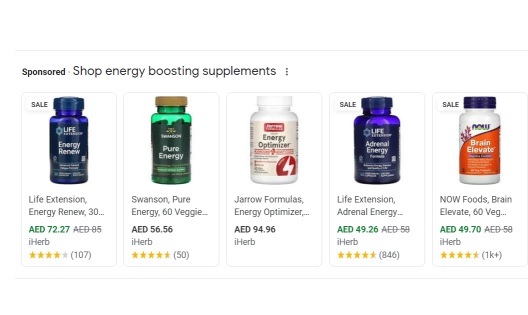Blog

Energize Your Day: A Comprehensive Guide to Energy-Boosting Supplements
Introduction
In our fast-paced world, fatigue and low energy levels are common complaints. The demands of modern life, including work, family, and personal commitments, often leave us feeling drained and in need of an energy boost. While a healthy diet, regular exercise, and sufficient sleep are key components of maintaining high energy levels, some people turn to supplements to help bridge the energy gap. In this article, we will explore various supplements that have gained popularity for their purported energy-boosting properties.
Caffeine: The Classic Pick-Me-Up
Caffeine is perhaps the most well-known energy-boosting supplement, primarily due to its presence in coffee and tea. It works by stimulating the central nervous system, providing a temporary increase in alertness and energy. However, it's essential to use caffeine in moderation to avoid potential side effects like jitteriness and disrupted sleep patterns.
B Vitamins: The Cellular Energizers
B vitamins, particularly B1 (thiamine), B2 (riboflavin), B3 (niacin), B5 (pantothenic acid), and B6 (pyridoxine), play a crucial role in energy production at the cellular level. These vitamins are found in various foods and can be taken as supplements. They assist in converting food into energy and are essential for maintaining healthy energy levels.
Creatine: Fuel for High-Intensity Activities
Creatine is a popular supplement among athletes and fitness enthusiasts. It enhances the body's ability to produce energy rapidly, especially during high-intensity, short-duration activities like weightlifting and sprinting. This supplement can improve exercise performance and reduce fatigue.
Iron: Fighting Fatigue Through Oxygen
Iron is vital for the transportation of oxygen in the bloodstream. An iron deficiency can lead to anemia, which is often associated with fatigue and weakness. If you're deficient in iron, supplementing can help restore your energy levels.
Rhodiola Rosea: An Adaptogen for Stress
Rhodiola Rosea is an adaptogenic herb that has been used for centuries to combat fatigue, both mental and physical. It's believed to work by reducing the body's stress response, helping to improve energy and focus. Many people use Rhodiola as a natural alternative to traditional stimulants.
Coenzyme Q10 (CoQ10): Cellular Energy Production
CoQ10 is a compound that helps produce energy within our cells. It's a natural antioxidant found in the body and in various foods. Some people take CoQ10 supplements to support energy production, especially as they age.
Ashwagandha: The Ancient Energizer
Ashwagandha is an adaptogenic herb from Ayurvedic medicine that's gaining popularity for its potential to boost energy and reduce stress. It may help your body adapt to various stressors, promoting increased energy and resilience.
L-Carnitine: Energy Transporter
L-Carnitine is an amino acid that plays a crucial role in energy metabolism by transporting fatty acids into the mitochondria, where they are used for energy production. It is often used to enhance athletic performance and reduce fatigue.
Maca Root: A Natural Energy Booster
Maca root, native to the Andes mountains, is known for its potential to increase energy, stamina, and endurance. It's often used as a natural alternative to traditional energy-boosting supplements.
Conclusion
While supplements can provide a convenient way to boost energy levels, it's essential to remember that they are not a substitute for a healthy lifestyle. A balanced diet, regular exercise, and adequate sleep should be the foundation of your energy management. Before starting any supplement regimen, it's crucial to consult with a healthcare professional to determine the best options for your individual needs and to ensure that you use them safely and effectively. When used wisely, these supplements can be valuable allies in your quest for sustained, natural energy.

Comments (0)